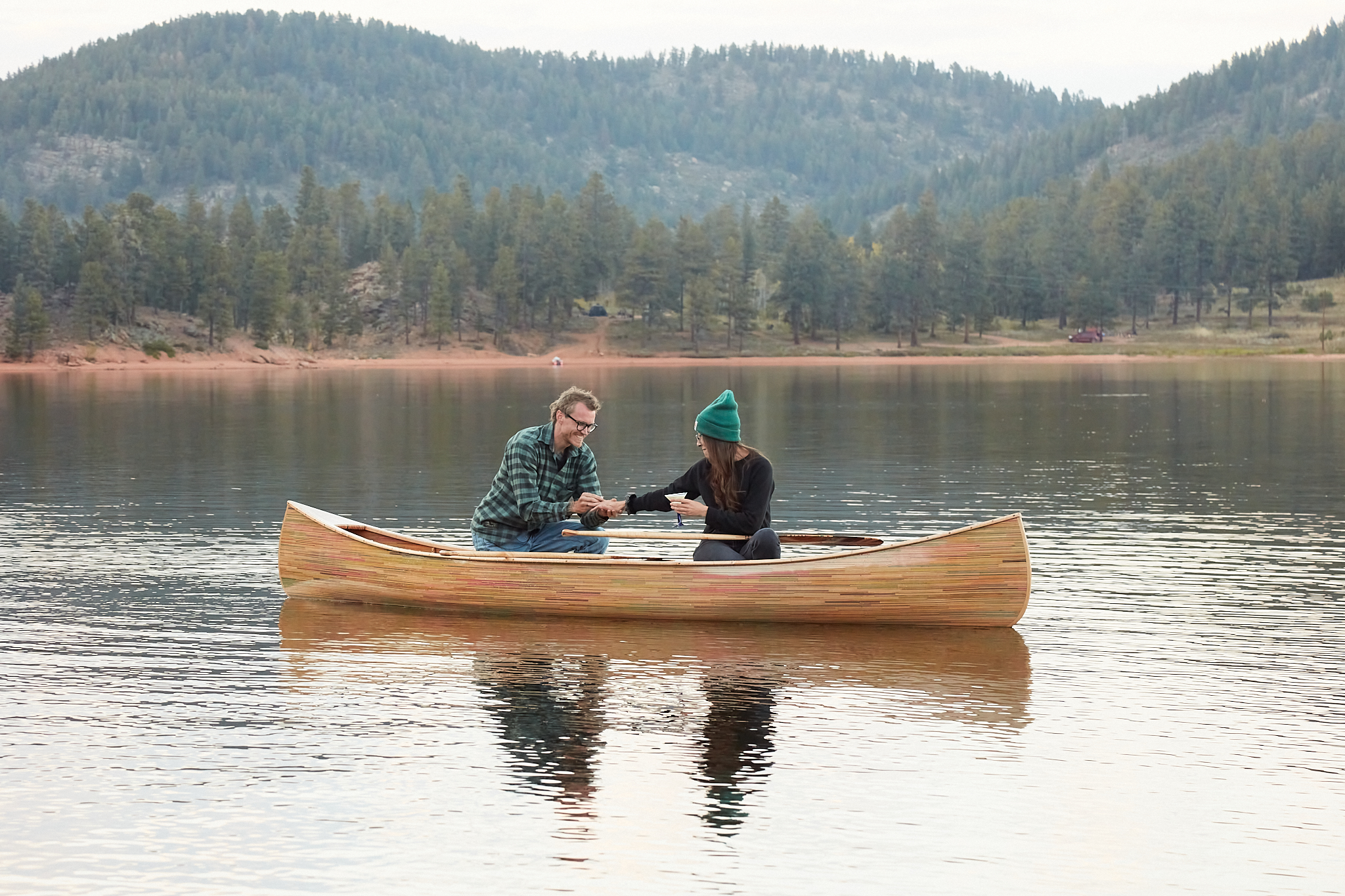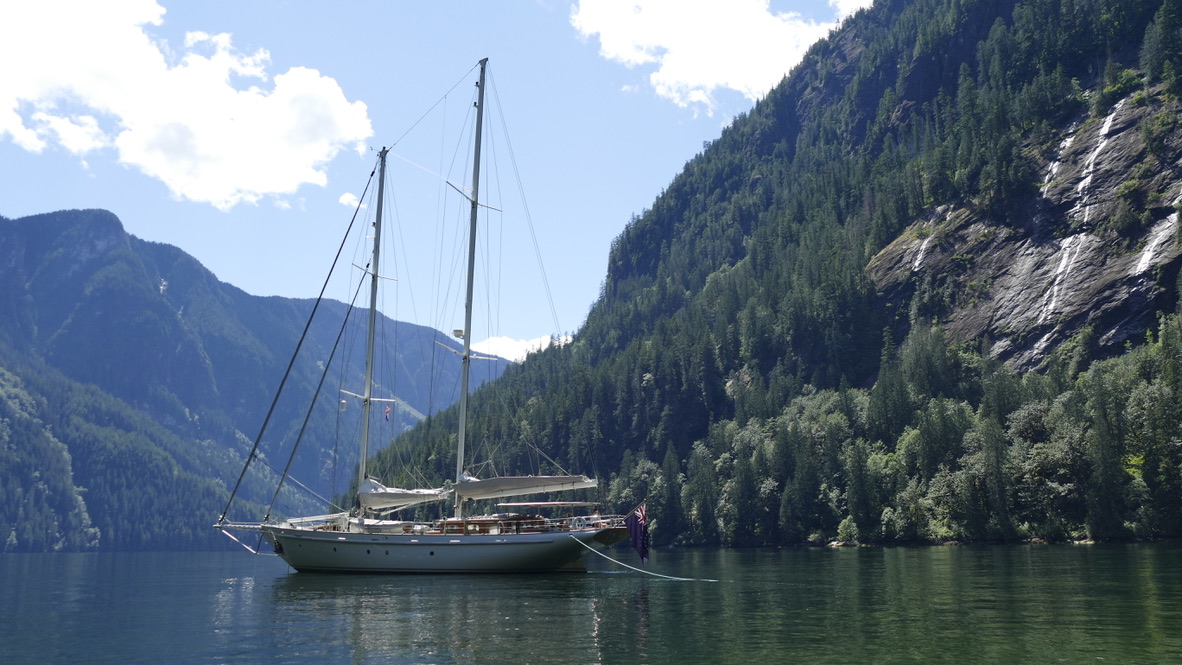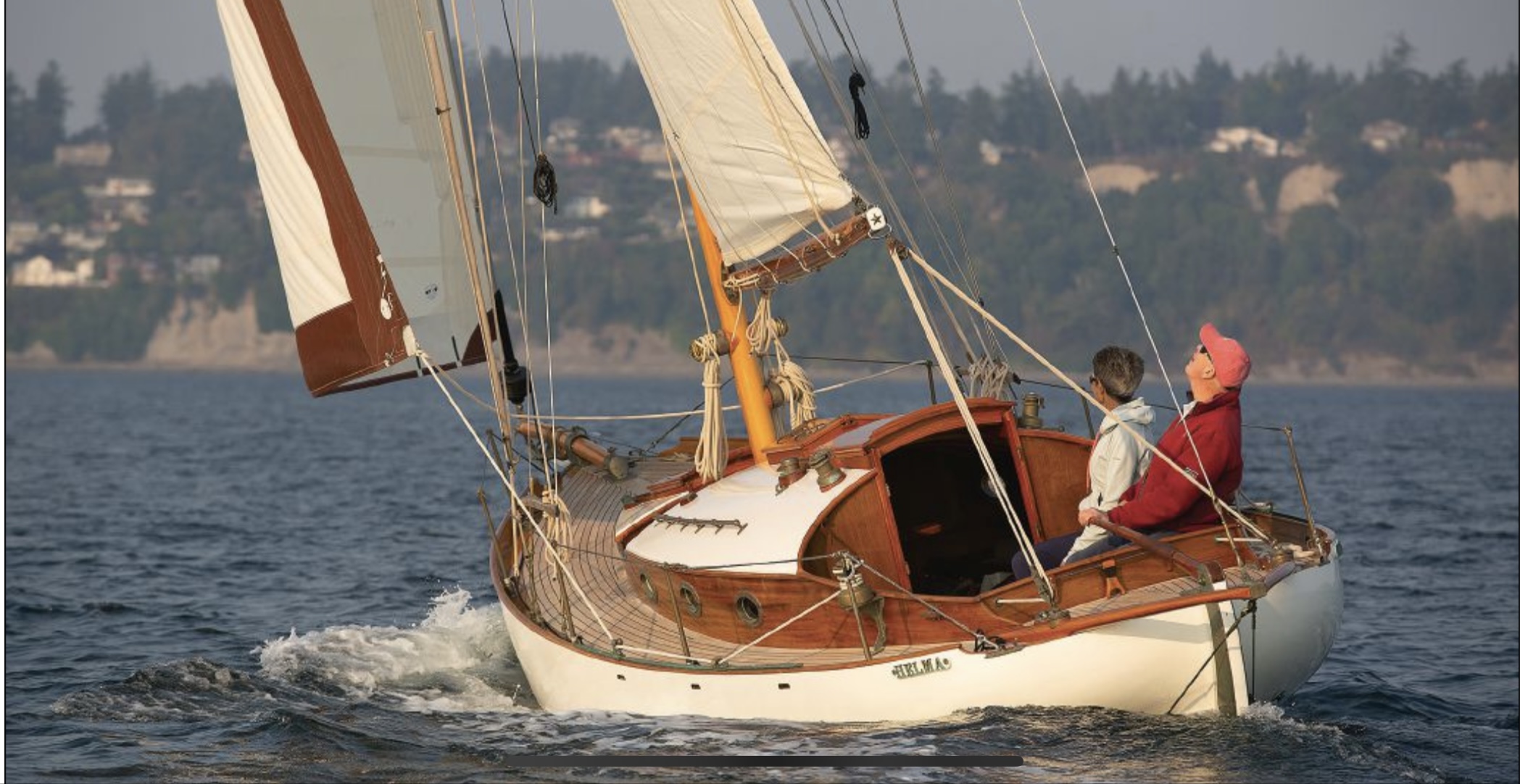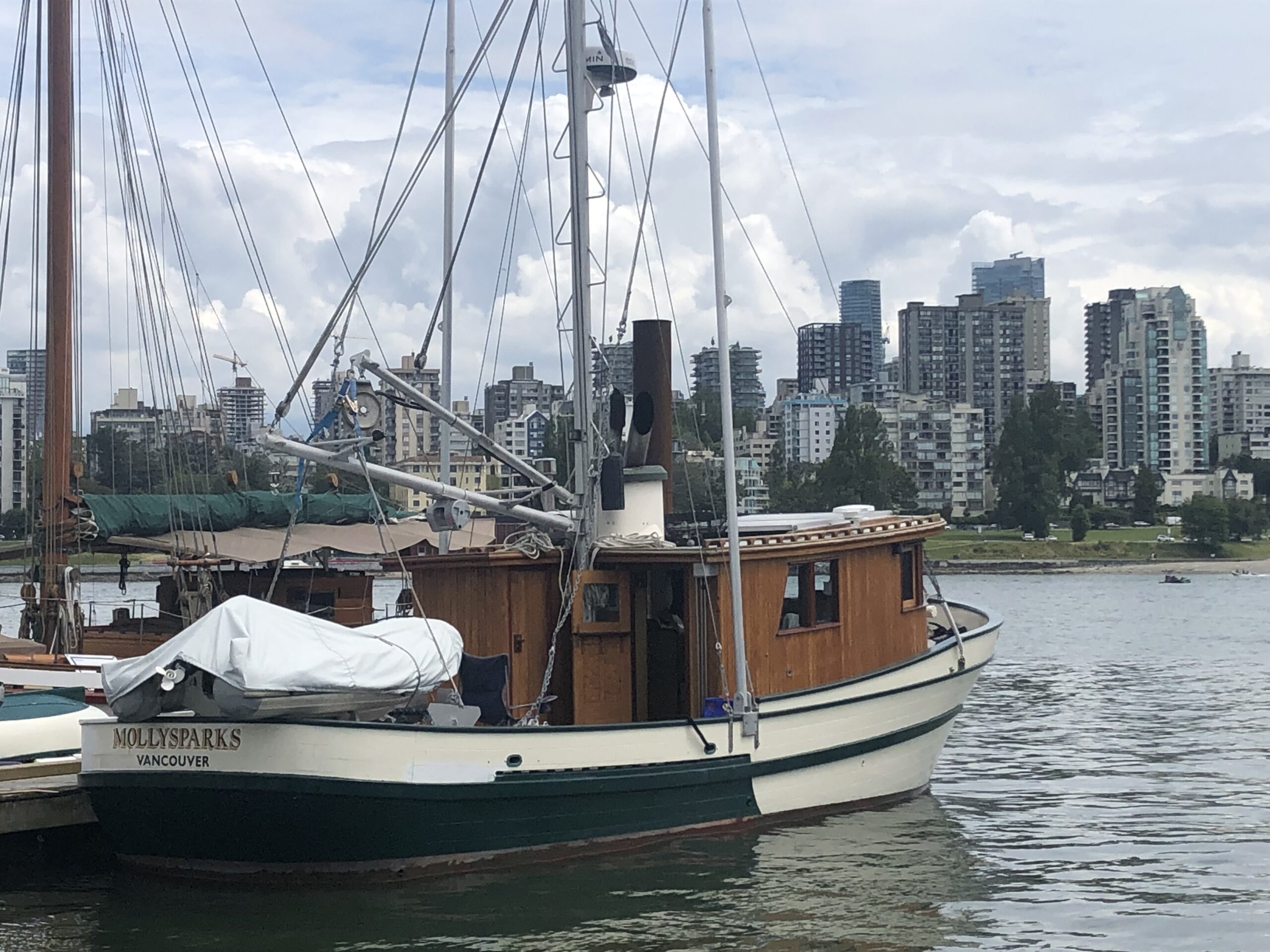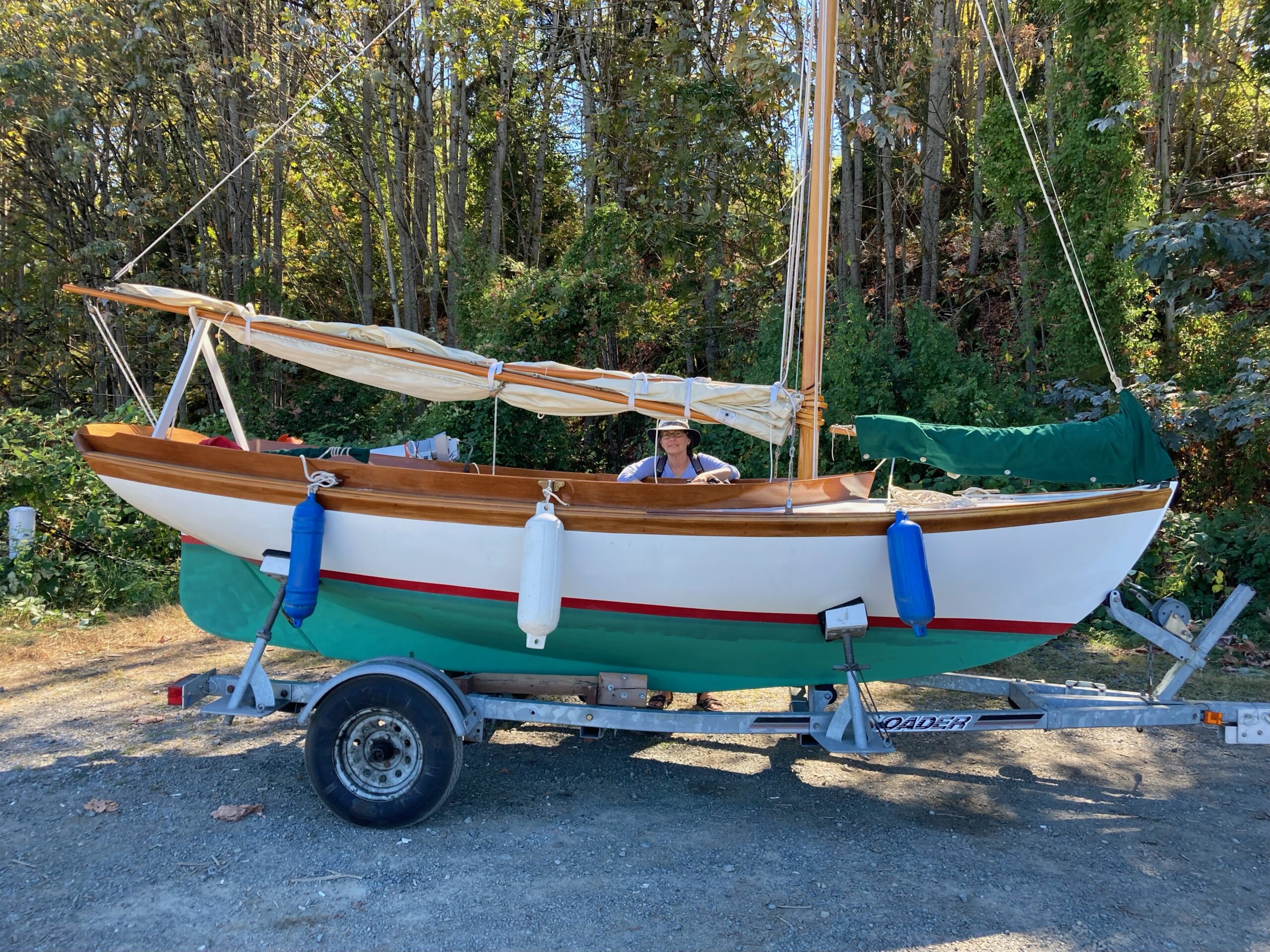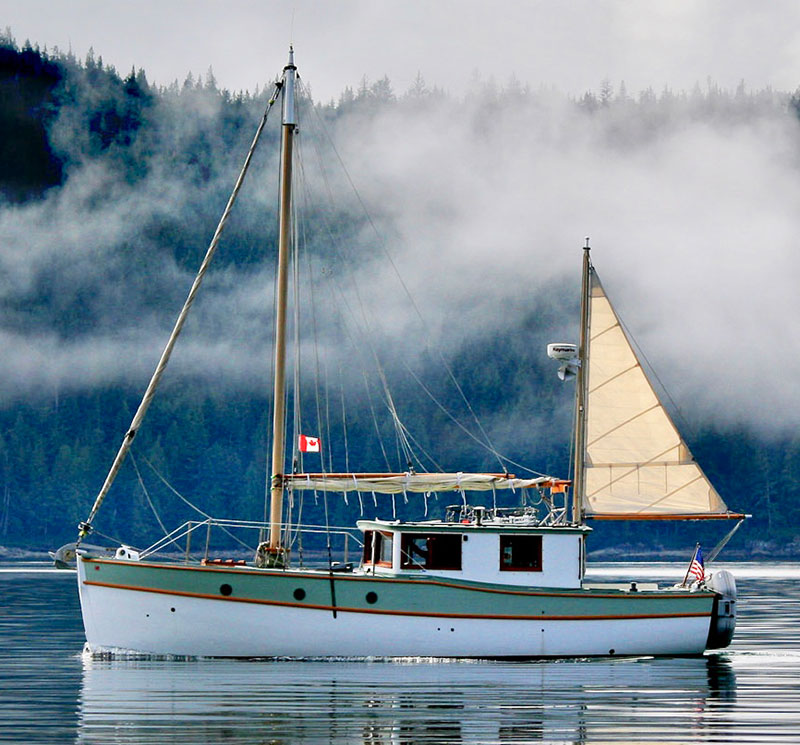
For Sale
Ama Natura is a 36’ custom gaff ketch motorsailer built by the NW School of Wooden Boatbuilding, launched at Point Hudson in 2008 and used each year since for marine decarbonization demonstration, clean water, wildlife protection advocacy, and exploration.
Under the expert design guidance and deep knowledge of the NWSWB’S Carl Chamberlain, AMA Natura (“She Loves Nature”) was collaboratively designed with the owner, Capt. Peter Wilcox, to be an extremely low-impact NW cruising vessel, and a floating laboratory of decarbonizing green technologies.
The 36′ LOA, 10-ton displacement nearly 14-year-old vessel has consistently utilized 100% waste source biofuels—first biodiesel (B100) and over the last two years Renewable diesel (R99)—in its 48HP naturally-aspirated, slow turning diesel, and the same for heat when needed. AMA’s sailing salmon troller-inspired hull was modeled for efficiency and with its 3:1 gear reduction and 24” feathering prop, AMA sips ¾ GPH or less at a non-cuprous bottom paint hull speed of about 7 knots. Her auxiliary is a modest gaff ketch sail rig with just over 500SF of canvas that both steadies her motion and drives her near hullspeed on a beam reach.
Even the motor oil, transmission fluid, and steering fluid used in AMA are low carbon, low toxicity, and bio-based, the same ones in fact that NOAA has employed in many of its fleet for the last 15 or so years. AMA has a composting Air Head, and 255 watts of solar PV capacity with four carbon-foam Firefly house batteries and an Optimal gel starting battery to meet her electrical needs at anchor or dock. She seldom uses shorepower while underway, and we normally only plug her in at dock for the darkest three months of the year.
AMA is the flagship of the Inside Passage Decarbonization Project, started and led by Capt. Peter and Mate/Decarbonizer Community Builder, Bridget. The “IPDP” has been building partnerships with First Nations, ports, resorts, fuel docks, environmental NGO’s like Greenpeace Canada, and boaters up and down the length of the Inside Passage to implement its 20-year vision of dramatically lowering carbon emissions, eliminating toxic liquids and implementing 100% renewable shorepower throughout the Inside Passage by 2035. The IPDP also researches and advocates for fully recyclable boatbuilding materials, including durable and stabilized woods.

